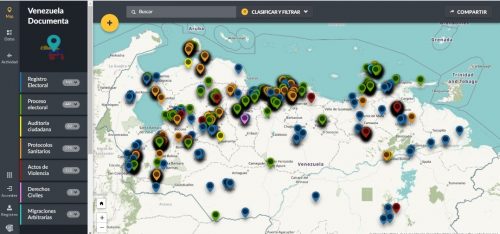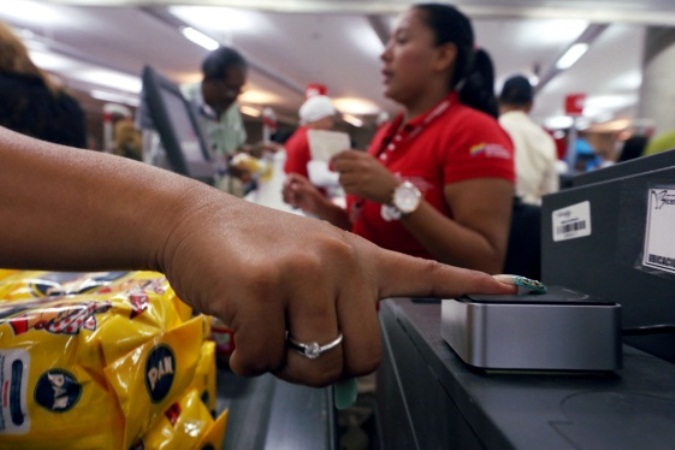Caracas, April 05, 2022
Mr. Nicolás Maduro Moros
President of the Bolivarian Republic of Venezuela
We cordially greet you as we deliver the following considerations after our first meeting to establish lines of work upon which we can agree. We do so as individual citizens since the short notice of this meeting did not allow us to carry out a broad and comprehensive consultation of the Civic Forum, an instance to which we belong.
- No democratic society functions without a democratic public culture or organizations and citizens working for the materialization of democratic values. As citizens, we are convinced that the crisis, and the political conflict that originates it, demand a concerted action of intermediation and political dialogue that summons political actors -and the whole of society- to reduce the costs of reaching national agreements on the road to democratization.
- Just as in 2021, civil society organizations grouped under the Civic Forum carried out a process of dialogue and negotiation with different political sectors, from the opposition and the government, to agree, within the narrow limits of the political conditions we have today, on a National Electoral Council (CNE) leadership that would offer some confidence that an electoral process could be developed under better institutional and political conditions, in 2022 this group has actively continued exercising that role in other areas. The judicial reform process is one of them. The appointment of the magistrates of the Supreme Court of Justice cannot be a minor matter since it is a fundamental structure for the political and institutional metabolism of the country. Without dismissing the unconstitutional elements of the law that calls for judicial reform, without disregarding the particularist and politicized visions with which political actors have approached this matter, we believe that this is an opportunity to negotiate and exercise influence so that the new TSJ be composed, at least to some extent, by honorable magistrates who can be asked for responsibility and accountability in their work.
- The chances of this happening are not high. Unlike what happened with the CNE, the political forces are immersed in internal processes of readjustment and redefinition that prevent them from openly committing themselves to a process of high political cost. The corporative characteristics of the judicial field also have an impact on the capacity of civil society to exercise influence. But even so, 11 candidates were nominated through the Civic Forum who model the characteristics we would want to see in all magistrates. With the radical realism that inspires us, we are concerned that it was not the qualifications of the candidates that decided the selection. Still, we do not believe that it is possible to demand accountability and management if we do not participate and closely follow the nomination process, making the voice of institutionality and the spirit of the Constitution heard.
- The visit of the Prosecutor of the International Criminal Court, Karim Khan, sends encouraging signals as to the relevance of this vision: to achieve justice in Venezuela requires the recovery of the institutional capacities of the State, which today are politicized and deteriorated to the point of asphyxiation. The restoration of the functionality and impartiality of the judicial system would have an immediate impact on the quality of life and social cohesion of all Venezuelans. It is a national issue that cannot continue to be treated as a ground for political or corporate bias.
- This vision also includes the proposal to build a space of negotiated rules for humanitarian action in the national territory to strengthen the capacities and activities of humanitarian and human rights organizations. Other civil and trade organizations are seeking to participate in the systematic discussion of the Higher Education Law project; as well as for the accompaniment of the salary claims and demands of pensioners and retirees, the recovery of the health system, the proper functioning of public services and in general the full enjoyment of economic, social and cultural rights to guarantee the people of Venezuela a dignified life.
- All this is part of the process of building a Social and Rights-focused Agenda that will represent the confluence of projects and policies that citizens, civil organizations, social movements, and political movements harbor for the country: a common vision for a diversity of actors.
- These processes all obey a logic of negotiation that assumes that the national interest is on the horizon. High-level political negotiation, specifically the Mexico process, plays a fundamental role in maintaining this horizon. The political actors have the responsibility to carry it out. The role of civil society, in our opinion, consists in supporting it, disseminating it, and developing visions and policies within the negotiation agenda so that it becomes an issue for all Venezuelans and not only for the political actors.
- In today’s situation, with a military conflict that seemed unthinkable in the 21st century, Venezuela can play a role that would allow its reinsertion in the concert of nations by showing its willingness to advance in a program of institutional reforms that is not limited to recovering oil markets, but that signals the willingness of the political leadership to lead the nation through minimum consensus towards its best democratic conduct.
- We believe that the international community, the organizations of the United Nations System, the independent international organizations, the governments that have been attentive to the grave social, humanitarian and political situation in Venezuela, must contribute to encourage and strengthen any institutional progress that may have an impact on the daily life of Venezuelans. Such support will come, we hope, to the extent that the right signals are sent.
- Perhaps the key word with which we say goodbye is this: responsibility. We are responsible citizens who demand responsible leadership before the country. And we are willing to contribute to make it so.
Thanking you for your attention, we take this opportunity to reiterate our feelings of esteem and consideration.
Sincerely,
Mariela Ramírez. Movimiento Ciudadano Dale Letra
V. 8.179.135
Feliciano Reyna. President Acción Solidaria
V 4.351.698
Ricardo Cusanno. Ex President of Fedecámaras
V. 12.623. 065
Enrique López Loyo. President Academia Nacional de Medicina
V. 9.515.143
Luis Lander. Observatorio Electoral Venezolano
V. 3.180.027
Keta Stephany. University Professor
V.5.541.467
Pablo Zambrano. Union leader MOSBASE
V. 6.218.378
William Requejo. President Unión Vecinal para la Participación Ciudadana
V.14.198.873
Mauro Zambrano. Monitor Salud
V.18.910.555
Wanda Cedeño. Director of Voto Joven
V.26.194.025
Juan Luis Sosa. Academic
V 12.140. 282
Translated by Daniel Cooper Bermudez




